Treble’s Best Albums of the 70s: Part Two
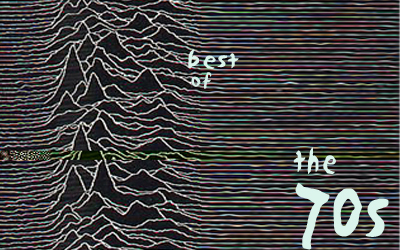
1979
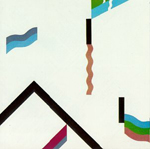 10. Wire — 154 (Enigma)
10. Wire — 154 (Enigma)
Three years, two albums and 154 live performances and Wire was ready to reinvent themselves. Again. Unwilling to stick to convention, even to the point of avoiding old songs at gigs, Wire expanded their sound into uncharted realms of pure art and sonic experimentation. 154 is at once their most accessible and their most difficult record. This record was so giant of a step for them, they had taken their sound so far out that they ran out of ideas shortly thereafter and broke up. — Jeff Terich
 9. Public Image Limited – Metal Box (Warner Bros.)
9. Public Image Limited – Metal Box (Warner Bros.)
Public Image Ltd.’s second offering Metal Box is a post-punk masterpiece of epic proportions. Touching reggae and experimental rock, the former Johnny Rotten and Co. prove that PiL is not just some Sex Pistols second act. While not as immediately palatable as Nevermind the Bullocks, those who get past the vast soundscapes, angular and painful guitars, and smooth basslines will find something truly beautiful from a man who championed ugliness and No Future. — Molly B. Eichel
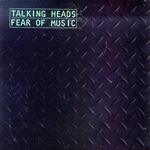 8. Talking Heads – Fear of Music (Sire)
8. Talking Heads – Fear of Music (Sire)
An album has never been so inappropriately named as the Talking Heads’ Fear of Music. If anything, Fear of Music shows that the Talking Heads are ready to face their Demons of Rock and make one of the greatest albums in their career of great albums. Tackling subjects such as death and war, the Talking Heads prove on their third album that they are one of the best bands to ever grace punk rock, and music in general. And above everything else, they just want to boogie. — Molly B. Eichel
 7. Pink Floyd – The Wall (Columbia)
7. Pink Floyd – The Wall (Columbia)
The Wall‘s scope and ambition elevated Pink Floyd’s hallucinogenic acid-rock to a new level, and delivered a theatrical flourish that few bands could replicate. The Wall doesn’t work particularly well if you think of it as a straightforward pop album, but as a performance it draws you in like a whirlpool. Like all of Floyd’s albums, it forces you to peer inside your head, and does it with a character and a story rather than just songs. — Andrew Good
 6. The Cure – Three Imaginary Boys/ Boys Don’t Cry (Fiction)
6. The Cure – Three Imaginary Boys/ Boys Don’t Cry (Fiction)
Ah, the pink record sleeve and the pictures instead of song titles. All this and clean cut to boot! Before Robert Smith had `the hair’ and had been beatified by the goth elite, he was a teenager who liked punk music. In trying to make his own, he found a shockingly accessible mix of pop and post-punk that became hit songs like “Fire in Cairo,” “10:15 Saturday Night,” “The Subway Song” and “Meathook.” Alas, single releases “Boys Don’t Cry” and “Jumping Someone Else’s Train” didn’t make the final UK cut, but a US version called Boys Don’t Cry added them to the tracklist. 3IB as it is abbreviated, is the true original, but our staff voted for both, and we were forced to combine the two. – Ernest Simpson
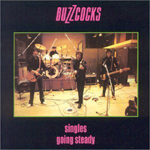 5. Buzzcocks – Singles Going Steady (IRS)
5. Buzzcocks – Singles Going Steady (IRS)
In 1979, there was no such thing as a punk “hits” album, as the genre was too young to have actually amassed many so-called “hits.” But The Buzzcocks combined 8 of their seven-inch releases onto one LP, and inadvertently created the quintessential punk rock album. Singles Going Steady works unbelievably well as a cohesive whole, despite the songs being recorded over the course of almost three years. Nonetheless, the fluidity of the album’s flow seems almost a little too perfect, like they knew they were going to release them as one complete collection. – Jeff Terich
 4. Elvis Costello and the Attractions – Armed Forces (Columbia)
4. Elvis Costello and the Attractions – Armed Forces (Columbia)
Beware the olyphaunts! (Or is it heffalumps?) Either way, the cover image of Armed Forces was bold enough to be a warning for what lay within: bold political diatribes set to brilliant pop music, all with Costello’s intelligent poison pen. Although its now most famous song wasn’t even included on the original track list, the rest more than make up for its absence. “Green Shirt,” “Accidents Will Happen” and “Oliver’s Army” are just three examples of Costello’s pop potency. — Terrance Terich
 3. Gang of Four – Entertainment! (Warner Bros)
3. Gang of Four – Entertainment! (Warner Bros)
Gang of Four didn’t sound or look like anyone, they were angry and angular, they dressed like your average bloke, and maybe the coolest thing about Gang of Four is that you can dance to them (I speak from experience, I saw them in May and it was the best show I’ve ever been to in my life). Each of these things set Gang of Four apart, and each of them would be like a manifesto that carried them through the process of recording their seminal and highly influential debut album. — Christian Conlon
 2. Joy Division – Unknown Pleasures (Factory)
2. Joy Division – Unknown Pleasures (Factory)
Martin Hannett’s employment of cutting edge studio technology gave Unknown Pleasures a haunted and otherworldly quality that at times makes the songs seem like they comes from another place and age. But while the quality of production was more than above average, it could not stand alone. The four musicians that made up Joy Division’s sound each brought unique styles of playing to the band and this record in particular. Their sound would come to define, and ultimately surpass, post-punk, and would set them far apart from the other bands that would come out of Manchester. — Christian Conlon
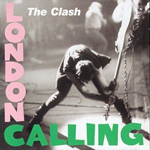 1. The Clash – London Calling (Epic)
1. The Clash – London Calling (Epic)
The ice age is coming, the sun’s zooming in. Meltdown expected, the wheat is growing thin. A nuclear era, but I have no fear, because I have London Calling the last album you should listen to, should the apocalypse actually come as Joe Strummer predicted it. It has highs and lows, peaks, but no valleys. It’s a perfect double album, an adventure in rock `n’ roll, the total abandonment of this thing we call “genre” and the ultimate rock album. London Calling, it should be noted, was not only Treble’s favorite album of 1979, but our favorite album of the decade overall. In fact, no other album even came close. This is an essential album if there ever was one. — Jeff Terich
Personal Best
 XTC – Drums and Wires (Virgin)
XTC – Drums and Wires (Virgin)
XTC was once a bouncy, bippity-boppity new wave band with synth-tastic hooks. But that went out the window (for the most part) with Drums and Wires, a fantastic album that saw the band re-invented as a jagged, rockin’ post-punk guitar band with better musicianship than basically any of their peers. Containing early hits like “Making Plans for Nigel” and unsung classics like “Roads Girdle the Globe,” Drums and Wires was the first of the band’s truly essential albums, and unleashed a torrent of intensity long before Andy Partidge became crippled with stage fright and stuck to studio-enhanced orch-pop. — Jeff Terich
 The B-52’s – The B-52’s (Warner Bros.)
The B-52’s – The B-52’s (Warner Bros.)
Formed in the mid-70s after a drunken night at a Chinese restaurant, the members of the B-52’s had no musical experience prior to their inception. Their sound was crisp and their instruments came straight from the thrift store. But when they cut their self titled, hook-laden, debut album in the summer of 1979, with campy dance-pop sounds that were ahead of their time, it was like the whole world had a window into what was to come for all the campy and kitschy fads of the ’80s, now considered “retro.” The album went gold with virtually no radio play. Some even say it was the definitive moment as to when the New Wave sound had landed on America’s shores. — Chris Pacifico
 Prince – Prince (Warner Bros.)
Prince – Prince (Warner Bros.)
For You came and went quietly, but Prince’s self-titled sophomore album had greater things in store for the diminutive Minneapolis native. It would chart 141 slots higher than its predecessor despite the lack of a chart single. That’s not to say it wasn’t full of hits. Opener “I Wanna Be Your Lover” (this is before the whole U for you thing, mind u) was and still is a dance floor favorite. Prince’s falsetto is never better in this song of unbridled desire. “Why You Wanna Treat Me So Bad?” would be the blueprints for a host of early 80’s funk bands including some of the man’s own protégés. Finally, “I Feel For You” became a HUGE hit for Chaka Khan, to the point where I can remember having to dissect frogs in seventh grade science, spinning said frog on his back in a moment inspired by Beat Street and Breakin 2: Electric Boogaloo and singing “Chaka Frog…Chaka Frog….Chaka Frog let me rock you, let me rock you Chaka Frog!” But I digress. The point is, people were beginning to see Prince as a heavyweight songwriter, which he would remain for 26 years and counting. — Terrance Terich
Thanks for reading! We hope you enjoyed our trip back to the ’70s, as we had a blast!

